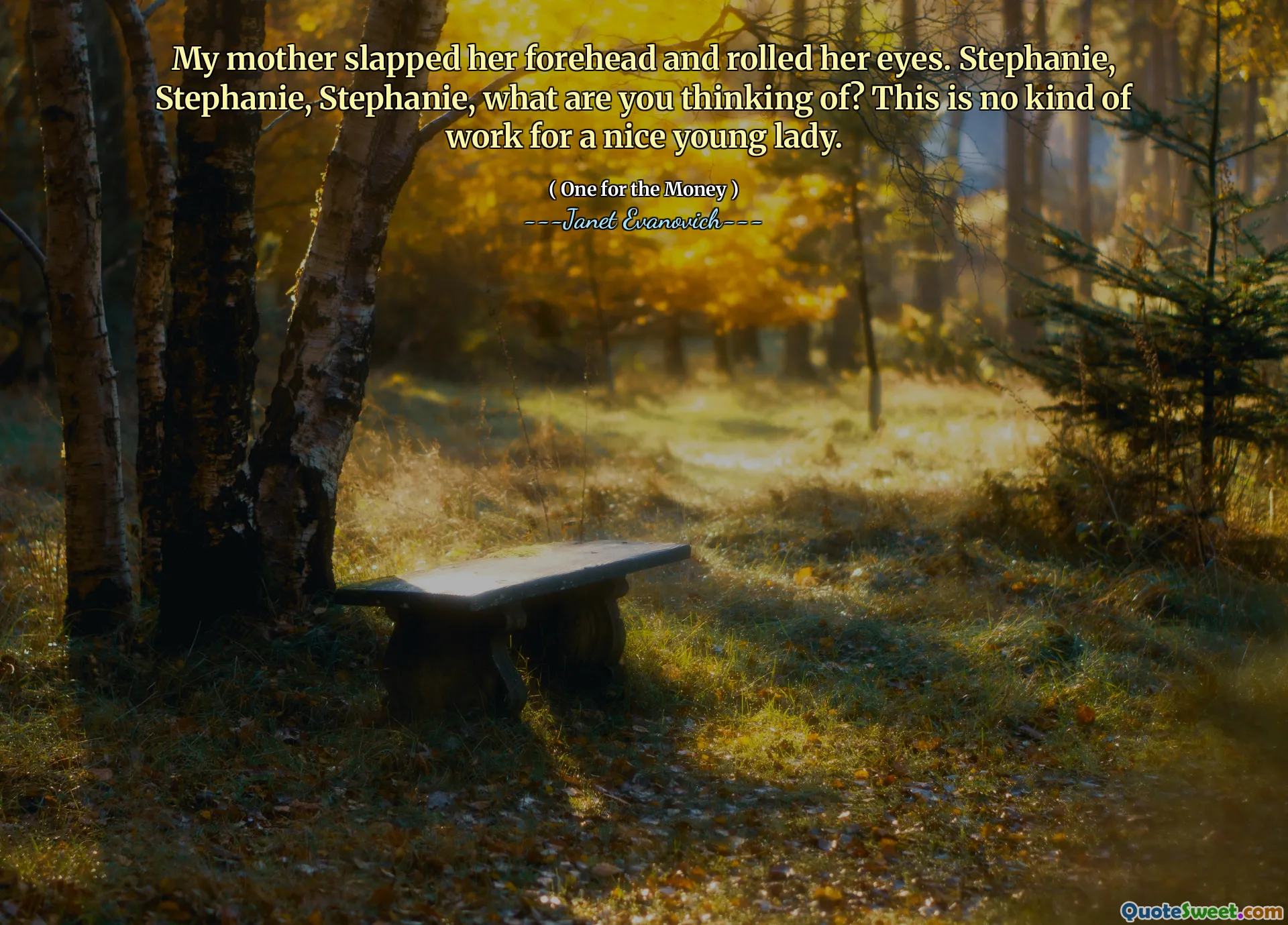
My mother slapped her forehead and rolled her eyes. Stephanie, Stephanie, Stephanie, what are you thinking of? This is no kind of work for a nice young lady.
This quote offers a vivid glimpse into family dynamics and societal expectations. The mother’s actions—slapping her forehead and rolling her eyes—indicate exasperation and a hint of frustration, commonly seen in parent-child interactions where generational or ideological gaps exist. The repeated name, Stephanie, underscores her familiarity and perhaps her disbelief at her daughter's behavior or vocabulary. The phrase 'what are you thinking of?' hints at a disconnect between what the mother perceives as appropriate behavior and what Stephanie is actually doing or intending. The admonition that this is 'no kind of work for a nice young lady' reveals societal judgments about gender roles and propriety, suggesting that certain pursuits, occupations, or behaviors are deemed unfit for women of her social standing or maturity. Such exchanges reflect broader cultural values prevalent in many societies, especially in earlier or more conservative contexts, where women were often restricted to certain roles and judged harshly if they stepped outside those boundaries.
On a deeper level, this quote also captures a universal theme of understanding and misunderstanding within families. It raises questions about independence, identity, and the evolving roles of women in society. Stephanie's actions—though not specified—likely challenge traditional expectations, which provokes her mother's stern response. This tension between individual agency and societal normativity is timeless, resonating with anyone who has felt misunderstood by their loved ones. It also encapsulates a moment of affectionate concern masked in mild rebuke, hinting at underlying love and worry. The vivid imagery of physical gestures like slapping and eye-rolling makes the exchange lively and relatable, emphasizing the emotional undercurrents that often accompany family dialogues.
In literary terms, such exchanges drive character development and plot progression by exposing core beliefs and conflicts. They remind readers that beneath everyday interactions lie layered emotional histories, cultural pressures, and personal aspirations. Overall, this quote captures a snapshot of familial love intertwined with societal constraints—an enduring theme that transcends cultures and generations.





